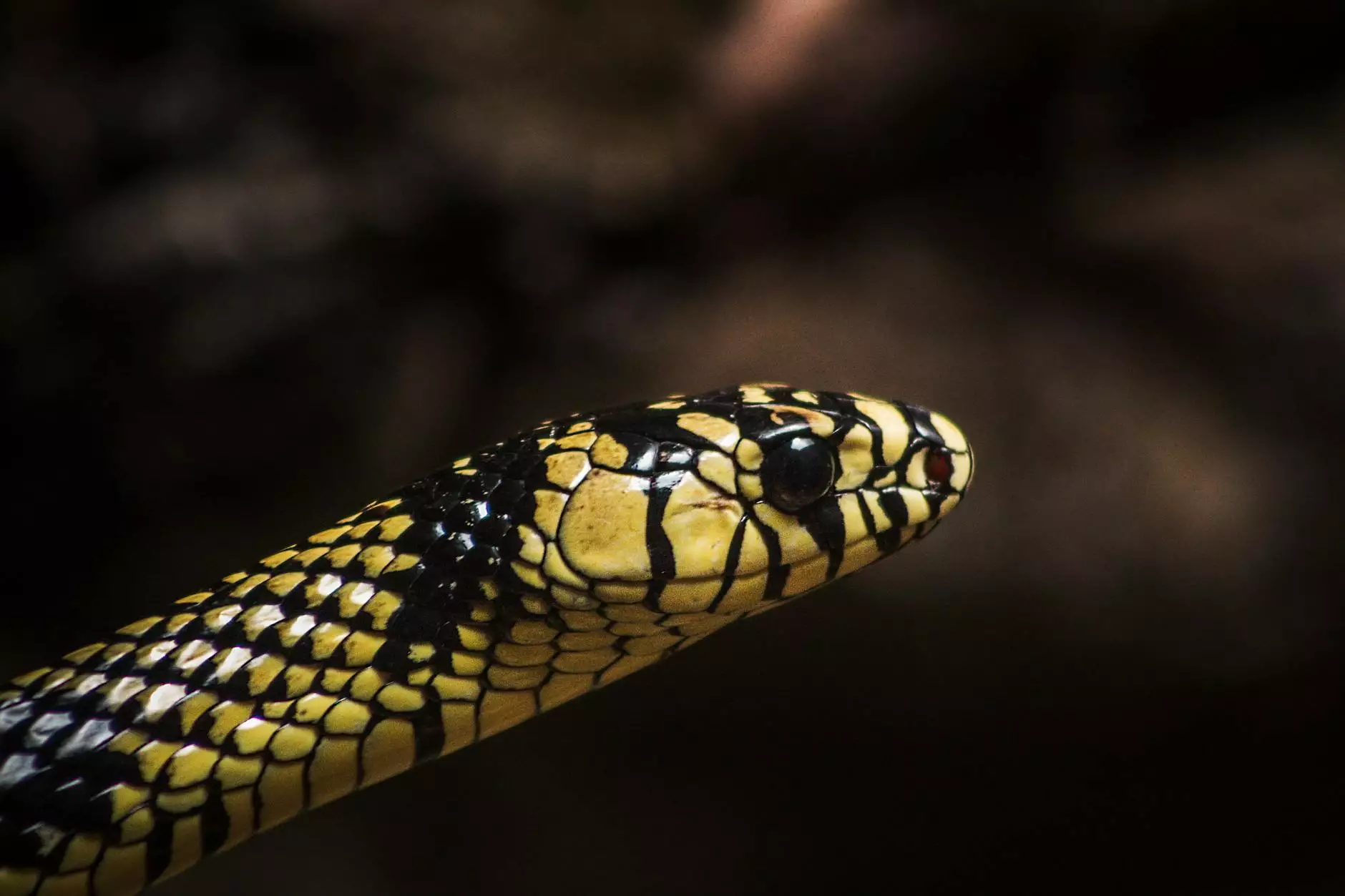The Ultimate Guide to Snakes as Pets

Snakes are often misunderstood creatures, but they can make incredible pets for the right owner. This comprehensive guide will delve into the various aspects of owning snakes, including their care, habitat needs, feeding, and the unique benefits of adopting a snake as a pet. If you’re considering adding a snake to your family or just curious about these captivating reptiles, you are in the right place!
Why Choose a Snake as a Pet?
Many people opt for traditional pets like cats or dogs, but snakes offer unique advantages that can be appealing to pet owners. Here are several reasons why you might consider a snake as a pet:
- Low Maintenance: Snakes require less daily attention than many traditional pets. They do not need walks or regular grooming, making them suitable for those with busy lifestyles.
- Space Efficient: Snakes do not require much space compared to larger animals. A properly maintained terrarium can provide all the room they need.
- Hypoallergenic: For snake lovers who suffer from allergies, snakes are hypoallergenic, making them an excellent pet choice.
- Long Lifespan: Many snake species can live for 15 years or more, providing long-term companionship.
- Educational Value: Owning a snake can teach children about biology, responsibility, and respect for wildlife.
Understanding Different Snake Species
Different species of snakes have varying needs in terms of care, habitat, and temperament. It’s essential to research and choose a species that fits your lifestyle. Here are a few popular pet snake species:
1. Ball Python
The ball python is one of the most popular pet snakes due to its docile nature and manageable size. They typically grow to about 3 to 5 feet long and can live for over 30 years in captivity. Ball pythons are known for their beautiful coloration and patterns, making them a favorite among reptile enthusiasts.
2. Corn Snake
Corn snakes are another excellent option for beginners. They are friendly, easy to handle, and come in a variety of colors. Typically, they reach lengths of 4 to 6 feet and can live for up to 20 years. Their hardy nature makes them perfect for those new to reptile care.
3. King Snake
The king snake is known for its striking appearance and resilient disposition. They are non-venomous and can grow between 3 to 6 feet in length. King snakes are also known for their unique ability to eat other snakes, including venomous ones.
4. Boa Constrictor
While more suitable for experienced owners, boa constrictors are majestic snakes that can reach lengths of 8 to 13 feet. They are generally friendly but require more space and advanced care due to their size.
Pet Adoption: Finding Your Perfect Snake
Adopting a snake can be a rewarding experience. BuyReptiles.com.au offers a range of snakes available for adoption. Here are some essential tips for adopting a snake:
- Research: Understand the specific care requirements and temperament of the snake species you are interested in.
- Adopt from a Reputable Source: Ensure that you adopt from a legitimate animal rescue or reputable breeder who prioritizes the animals' health and welfare.
- Ask Questions: Don’t hesitate to ask about the snake’s history, feeding habits, and health issues.
Creating the Ideal Habitat for Your Snake
Once you decide to adopt a snake pet, creating a suitable habitat is crucial for their health and wellbeing. Here are some key features to consider:
1. Terrarium Setup
Your snake’s terrarium should be spacious enough to accommodate its size and allow it to move around freely. A general rule of thumb is that the tank should be at least 2/3s the length of your snake.
2. Proper Temperature and Humidity
Snakes are ectothermic, meaning they rely on external heat sources to regulate their body temperature. A gradient where one side is warmer (approximately 85-95°F) and the other cool (75-80°F) is essential. Additionally, maintain proper humidity levels specific to your snake's species.
3. Substrate and Climbing Structures
Choose a substrate (the material that lines the bottom of the terrarium) that is safe and easy to clean. Common options include aspen shavings, coconut coir, or reptile carpet. Providing climbing structures and hiding spots is also vital for your snake’s mental stimulation.
Feeding Your Snake: Diet and Nutrition
Understanding your snake’s dietary needs is critical to its health. Most snakes are carnivorous and typically eat small mammals, birds, or rodents. Here’s a simple feeding guide:
- Live vs. Frozen: While feeding live prey can entice your snake's hunting instincts, frozen-thawed prey is safer. Always follow your snake's feeding preference.
- Feeding Frequency: Younger snakes may require feeding every 5 to 7 days, while adult snakes can be fed every 10 to 14 days.
- Size of Prey: Offer prey that is appropriately sized – typically about the same diameter as the thickest part of your snake's body.
Handling Your Snake
Proper handling techniques help build trust and reduce stress for your snake. Here are some tips:
- Start Slowly: Allow your snake to acclimate to their new environment before handling. Wait at least a week after bringing your new pet home.
- Support Their Body: Always support your snake with both hands, allowing it to feel secure.
- Avoid Handling Post-Feeding: Wait at least 48 hours after your snake has eaten before handling to prevent regurgitation.
Common Health Issues in Pet Snakes
Like all pets, snakes can encounter health problems. Being aware and proactive can help prevent or mitigate these issues. Common health concerns include:
1. Respiratory Infections
Symptoms may include wheezing, mucus discharge, or lethargy. Keep the habitat free from excessive humidity and drafts to help prevent infections.
2. Shedding Problems
If your snake has issues shedding, it may indicate inadequate humidity levels. Ensure that your snake has access to a humid hiding place during shedding.
3. Parasites
Internal and external parasites can affect your snake’s health. Regular vet check-ups and maintaining a clean habitat can mitigate these risks.
Conclusion: Snakes Can Be Amazing Pets
In summary, owning a snake can be a fulfilling experience that comes with unique responsibilities. By understanding their needs and providing proper care, you can cultivate a lasting and rewarding relationship with your pet snake. Whether you are intrigued by the allure of the snakes pet community, or whether you're exploring the option of adopting a pet snake, the information provided can help you on your journey. Check out BuyReptiles.com.au for more resources on pet adoption and quality care for your future snake companion!









